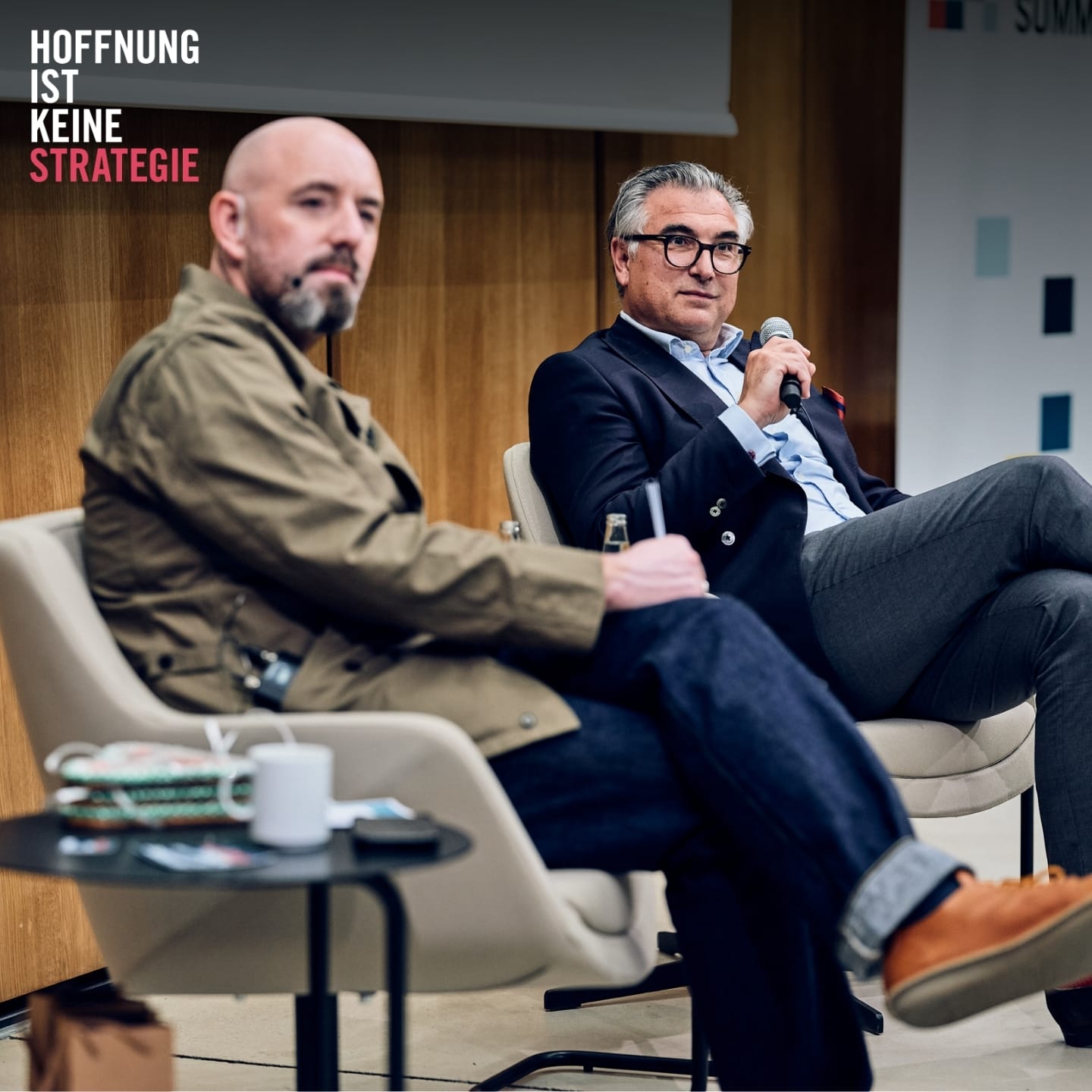
Independently financing entrepreneurial growth
One CFO, four divisions and a clear vision
What should you do if your bank suddenly pulls out? For many SMEs, this would come as a shock. For Johann Schmid-Davis, CFO of the HÖRMANN Group, it was the starting point for a strategic transformation - and the beginning of a success story that shows how entrepreneurial independence in SMEs can be rethought.
In the latest episode of "Hope is not a strategy", Christian Underwood talks to Johann Schmid-Davis about the development of a 70-year-old family business that has evolved from a traditional craft business into a diversified industrial group with four strong divisions - from automotive to communications and logistics to engineering. It is precisely this diversity, says Johann Schmid-Davis, that has been a decisive factor for stability in times of crisis. However, when the long-standing house bank unexpectedly terminated its loans in 2010 after the financial crisis, it became clear that stability also needed a new foundation.
From bank loans to bonds - a paradigm shift
Instead of remaining dependent on banks, the HÖRMANN Group decided to go to the capital market. In 2013, the company placed its first corporate bond - a bold move for a family business that until then had hardly spoken publicly about its figures. Johann Schmid-Davis describes how this resulted in a new financial architecture: with stable maturities, predictable interest rates and a balanced mix of equity, bank financing, promissory note loans and bonds. "For us, a bond is like concrete financing," says Johann Schmid-Davis. "It runs for five years, regardless of the economy or bank conditions - and creates exactly the freedom you need to invest strategically."
Think - and act - with capital market capability
The move to the capital market is no quick fix. Three years of preparation, structural adjustments and a lot of persuasion were necessary to make the HÖRMANN Group ready for the capital market. New reporting structures, quarterly publications and a holding structure ensured transparency - and that the company now enjoys international investor confidence. Particularly noteworthy: The HÖRMANN Group recognized early on that openness is not a risk, but a competitive advantage. Reporting became a strategic discipline - and capital market expertise became part of the company's DNA.
Independence as a strategic goal
What sounds like a financial decision is actually a strategic realignment. The HÖRMANN Group has understood that raising capital is not an end in itself, but a lever for long-term freedom of action. At a time when many companies are complaining about dependencies on banks, supply chains or economic cycles, this example shows that independence can be planned - if you are prepared to change structures and take responsibility.
For whom this episode is worthwhile
This podcast is a must for CFOs, strategists and entrepreneurs who want to think beyond traditional financing channels. It shows how SMEs can use the capital market as an instrument for stability, growth and freedom - and why it pays to see financial strategy as part of corporate strategy.
🎧 Listen in now and discover how the HÖRMANN Group combines financial architecture, courage and strategy.
Would you like to find out more about our advertising partners? Here you can find all information
SHOWNOTES